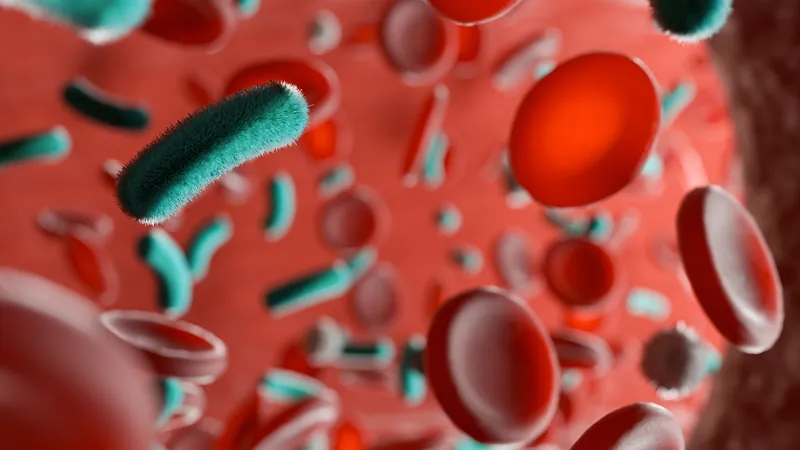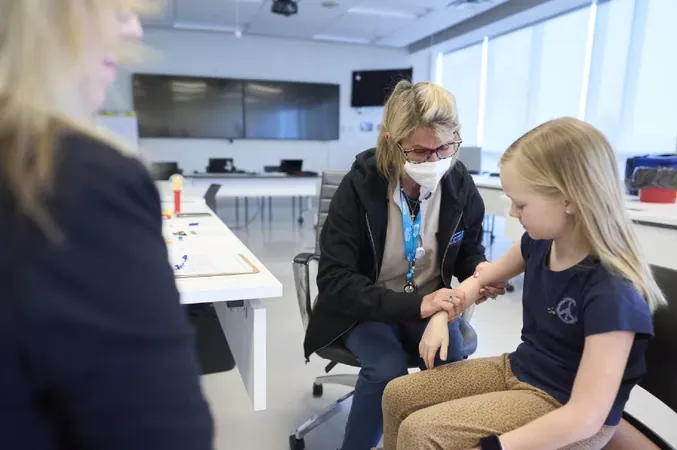
New Study Unveils Connection Between Hormonal Contraceptives and Postpartum Depression Risk
2025-04-24
Author: Noah
The Alarming Link: Hormonal Contraceptives and Mental Health
A groundbreaking study published in JAMA Network Open has revealed that first-time mothers who start hormonal contraceptives (HC) may face an increased risk of postpartum depression. This concerning connection was identified in women using combined oral contraceptives, combined nonoral contraceptives, and progestogen-only nonoral contraceptives, though findings for progestogen-only pills remain inconclusive.
A Global Concern—Millions Affected
With around 248 million women globally relying on hormonal contraceptives for family planning, understanding the safety and health implications of these methods is crucial. Although all contraceptives aim to prevent unwanted pregnancies effectively, their side effects can vary greatly from one individual to another, making safety a significant consideration for healthcare providers.
More Than Just Mental Health—Physical Risks Too
Previous research has indicated that hormonal contraceptives could elevate the risks of serious health conditions, including ischemic stroke and myocardial infarction. Furthermore, certain methods have been linked to an increased risk of breast cancer for BRCA1 gene carriers, underscoring the potential hazards associated with these contraceptive options.
Uncovering the Unknown: The Postpartum Period
Before this study, the relationship between hormonal contraceptive use and postpartum depression was largely unexplored, particularly given that new mothers are already at a heightened risk of depression. The Danish researchers utilized a national health registry to analyze the initiation of contraceptives postpartum and its link to depression in a vast population over a one-year follow-up period.
Impressive Scale and Results of the Study
The population-based cohort study involved a staggering 610,038 first-time mothers who gave birth between January 1997 and December 2022. Notably, women with pre-existing depression or other complex medical histories were excluded to ensure clarity in the findings. Within the first year postpartum, around 40.7% of these women initiated hormonal contraceptives, with researchers finding a significant link to subsequent depression.
Understanding the Statistics: What the Study Revealed
The study found that for women starting hormonal contraceptives, the adjusted hazard ratio (AHR) for developing depression was approximately 1.49 when compared to those who did not use HC. This translates to an uptick in their absolute risk within 12 months—from about 1.36% to 1.54%. Specifically, combined oral contraceptives and combined nonoral contraceptives showed even higher ratios of depression risk.
An Urgent Call for Awareness and Precautions
The findings of this study serve as a crucial reminder for both healthcare professionals and patients. With no observed trends relating to age and the depression risk associated with contraceptive use, it emphasizes the need for thorough patient education during postpartum contraceptive counseling. Awareness of these risks is essential in enabling women to make informed choices about their health and family planning.









 Brasil (PT)
Brasil (PT)
 Canada (EN)
Canada (EN)
 Chile (ES)
Chile (ES)
 Česko (CS)
Česko (CS)
 대한민국 (KO)
대한민국 (KO)
 España (ES)
España (ES)
 France (FR)
France (FR)
 Hong Kong (EN)
Hong Kong (EN)
 Italia (IT)
Italia (IT)
 日本 (JA)
日本 (JA)
 Magyarország (HU)
Magyarország (HU)
 Norge (NO)
Norge (NO)
 Polska (PL)
Polska (PL)
 Schweiz (DE)
Schweiz (DE)
 Singapore (EN)
Singapore (EN)
 Sverige (SV)
Sverige (SV)
 Suomi (FI)
Suomi (FI)
 Türkiye (TR)
Türkiye (TR)
 الإمارات العربية المتحدة (AR)
الإمارات العربية المتحدة (AR)